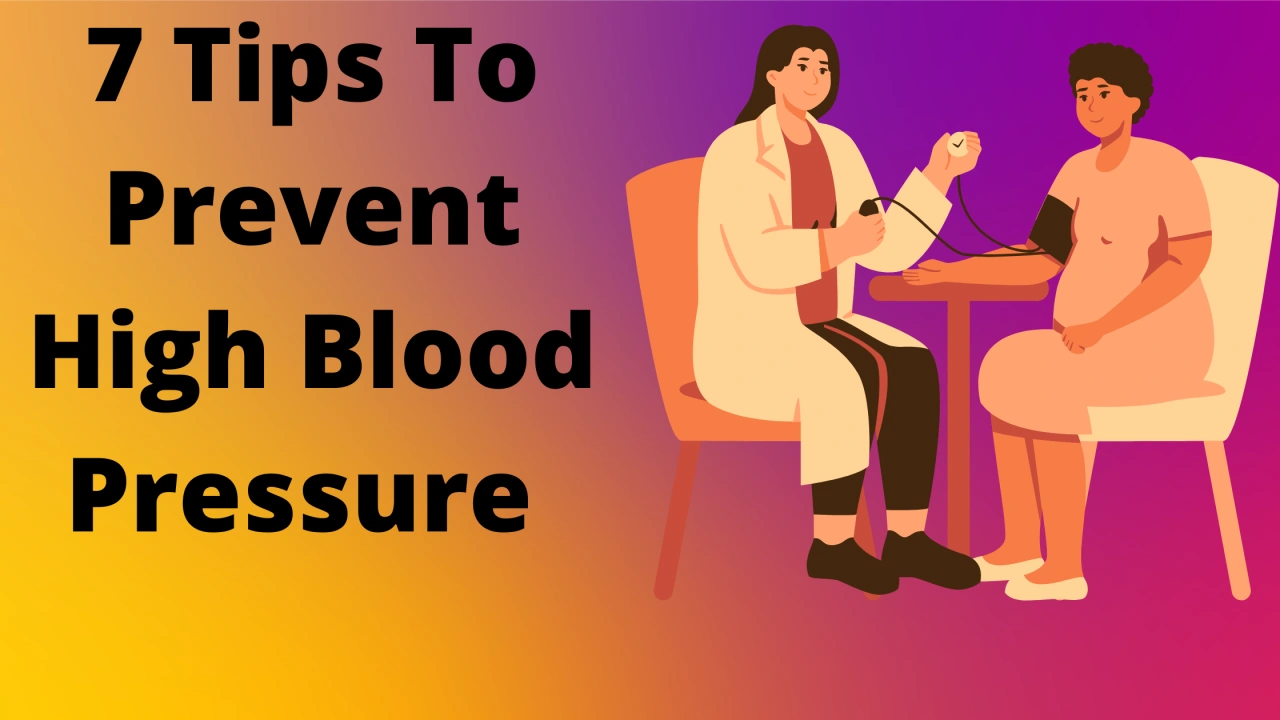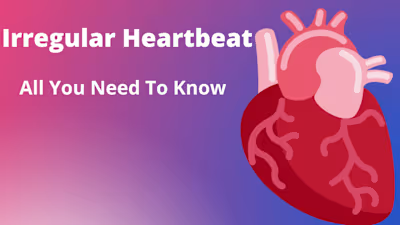7 Best Tips to Prevent High Blood Pressure (The Silent Killer)
Like this project
Posted Jun 17, 2023
High Blood Pressure (Hypertension) is sometimes called “the silent killer” because people who have it are often symptom-free. In the National Health And Nutrit…

High Blood Pressure (Hypertension) is sometimes called “the silent killer” because people who have it are often symptom-free.
In the National Health And Nutrition Survey(NHANES) conducted from 2011 to 2014, 39% of people who had pressures exceeding “140/90 mmHg” were unaware of their elevated blood pressure.
At most, there are no obvious symptoms. Once not treated, high blood pressure may cause damage to your circulatory system.
It is a contributing factor to cerebrovascular accidents (stroke) and other heart problems.
What Is High Blood Pressure(Hypertension)
The American Heart Association defines High Blood Pressure as: “when your blood pressure, the force of your blood pushing against the walls of your blood vessels, is consistently too high”.
If you have high blood pressure, you are not alone.
An estimated 1.28 billion adults aged 30-79 years worldwide have hypertension, most (two-thirds) living in low- and middle-income countries.
About 30% of adults in the United States have hypertension, and the prevalence increases significantly as people get older.
Though you can't control whether you get high blood pressure or not, lifestyle changes offer multiple health benefits and they do so with little cost and minimal risk.
When implemented before High Blood Pressure develops, they may prevent hypertension.
When implemented after hypertension develops, they can lower Blood Pressure thereby decreasing or eliminating the need for drugs.
Key measures you can take to prevent high blood pressure are discussed below.
1. Weight Loss
There is a direct relationship between obesity and the elevation of blood pressure.
Studies indicate that weight loss can reduce blood pressure in 60% to 80% of overweight hypertensive individuals.
A program of calorie restriction and exercise may be recommended for all clients who are overweight.
The goal is to achieve or maintain a Body Mass Index(BMI) in the normal range(18.5 to 24.9).
2. Sodium Restriction
Reducing sodium chloride(salt) intake can lower blood pressure in people with prehypertension( BP of systolic 120-139 mm Hg or diastolic of 80-89 mm Hg).
The Seventh Report Of The Joint National Committee On The Prevention And Treatment Of High Blood Pressure(JNC7) recommends all people with hypertension consume no more than 6gm of sodium chloride(2.4gm) of salt a day.
The Institute of Medicine recommends even lower salt consumption:
3.8gm/day for adults aged 50 and younger.
3.2gm/day for adults aged 51 to 70 and,
2.9gm/day for adults age 71 and older.
Clients may also be given information on the salt content of foods.
3. The DASH Eating Plan
Studies have shown that you can reduce blood pressure by adopting a healthy diet, known as The Dietary Approaches To Stop Hypertension(DASH) eating plan.
This diet is rich in:
Fruits
Vegetables
Low-fat dairy products
Low in total fat and saturated fats and cholesterol
In addition, the plan encourages the intake of:
Whole grains products
Fish
Poultry and
Nuts.
And recommend minimal intake of red meat and sweets. Source
4. Alcohol Restriction
Excessive alcohol consumption can raise blood pressure and create resistance to antihypertensive drugs.
Accordingly, clients should avoid or limit alcohol intake:
Men should not consume not more than 1 ounce/day
Women should consume no more than 0.5 ounces/day
One ounce is equivalent to about two mixed drinks, two glasses of wine, or two cans of beer.
5. Aerobic Exercise
Regular aerobic exercise can reduce blood pressure by about 10 mm Hg. In addition, exercise facilitates weight loss, reduces the risk of cardiovascular disease, and reduces all-cause mortality. Exercises to do include:
Jogging
Walking
Swimming
Bicycling etc.
An activity as simple as brisk walking 30 to 40 minutes most days of the week is beneficial.
The American Heart Association(AHA) recommends getting at least 150 minutes per week of moderate-intensity aerobic activity or 75 minutes per week of vigorous aerobic activity, or a combination of both preferably spread throughout the week.
6. Smoking Cessation
Smoking is a major risk factor for Cardiovascular Disease. Each time a cigarette is smoked, Blood Pressure rises.
In hypertensive clients, smoking can reduce the effects of antihypertensive drugs. All clients who smoke should be encouraged to quit.
Smoking will cause your arteries to narrow much more quickly, and your risk of heart or lung disease in the future is highly increased.
7. Maintenance Of Potassium And Calcium Intake
Potassium has a good effect on Blood Pressure. In clients with high blood pressure, potassium can lower BP, especially among those who are black, older, etc.
But may not be good due to chronic kidney disease or the use of drugs that reduce potassium excretion.
For optimal Cardiovascular effects, all people may be suggested to take in 50 to 90 mmol of potassium a day.
Preferred sources are fresh fruits and vegetables or dietary supplements. These may be used as advised by a physician.
Although adequate calcium is needed for overall good health, the impact is only small. Studies show that high calcium intake is associated with a reduced incidence of hypertension.
Summary
You can't do anything about your age, but you can do something about your lifestyle.
In many cases, this will be your doctor’s first recommendation, likely in one of the ways above.
Studies show that diets rich in fruits, vegetables, and low-fat dairy products can prevent the development of hypertension and lower elevated blood pressure.
Make an effort to prevent high blood pressure, and reduce your risk of heart attack, stroke, and other serious illnesses.








